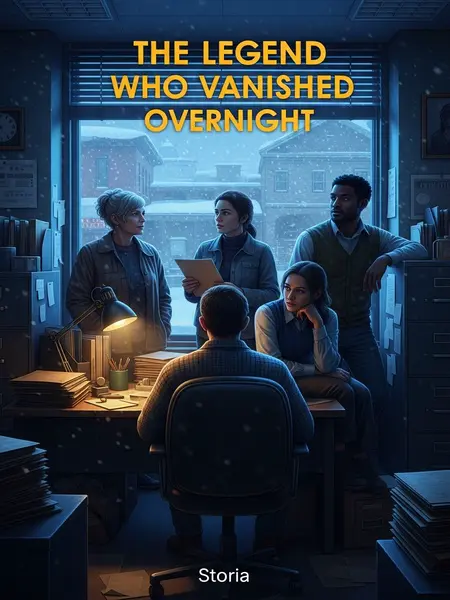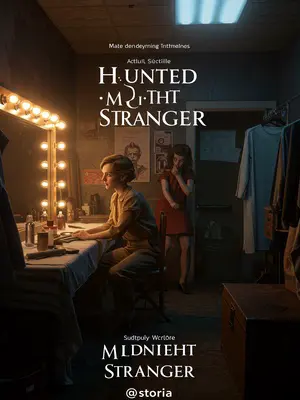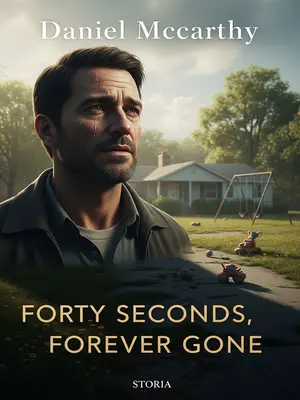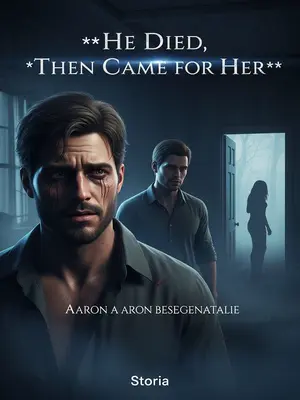Chapter 3: When the Snow Falls Twice
Besides money and beauty, there are two fatal temptations for men: backhoes and architectural models.
Someone joked, "Forget sports cars—give me a backhoe or a model train set, and I’m set for life." We all laughed, tension easing a bit.
We all marveled at it, slowly getting lost in the scene, completely forgetting we’d come to look for Big Mike.
Someone even leaned in close, tracing the tracks with a finger, lost in the fantasy. For a moment, we were all kids again.
An hour later, the boss reminded us, and everyone reluctantly went back downstairs.
It was hard to tear ourselves away. People lingered, taking photos, promising to come back.
We didn’t find Big Mike or any useful clues. As we were about to leave, a colleague spoke up.
“I don’t think Big Mike’s gone far.”
“Oh? Why?” Everyone perked up.
People straightened in their seats, hope flickering in their eyes.
The colleague pointed at the phone charger plugged in by the bed: “No one goes far without bringing their phone charger these days.”
It was a small detail, but in the absence of anything else, it felt huge.
Everyone agreed, but the reasoning felt a little thin.
Since charging ports became standardized, phones get replaced quickly, and everyone has a few chargers at home.
Someone muttered, “Maybe he’s got a spare at work, too.” The hope faded a little.
“Anyone else notice anything?” the boss asked.
He was scanning the room, desperate for any clue.
“Hey, did you see how clean the place is?”
“Of course. Big Mike’s the most diligent guy in the company. Of course he keeps his place spotless.”
The colleague shook his head and pointed at the open living room window.
He gestured for us to come closer, his voice low.
Anyone with common sense knows that if you leave the window open, dust will settle on the sill.
He wiped the sill with his hand—no dust at all.
It was spotless, just like the rest of the apartment. Maybe Mike had come back to clean, or maybe he’d never really left.
Everyone thought this was an important clue. At least it proved Big Mike had been home in the last couple of days and had cleaned up.
People started speculating again, voices rising. Maybe he was just laying low. Maybe he’d come back any minute.
Everyone got excited and started guessing where he might have gone.
Theories flew—maybe he was visiting family, maybe he was on a secret mission. Someone even suggested he’d joined a monastery.
At that moment, the boss spoke up quietly.
“I opened the window. When we came in, the sewer smell was so bad, I opened it to air the place out.”
The room went quiet again. The hope drained from our faces.
Everyone’s hopes were dashed. No one wanted to speculate anymore.
A heavy silence settled over us. Someone coughed. The boss stared at the floor, looking ten years older.
Before we left, we had a locksmith change the lock. The boss kept the key and sent Big Mike a message:
“Mike, sorry. We were too worried about you, so we forced the door and changed the lock. The key’s with me.”
He typed the message slowly, fingers trembling a little. You could tell it hurt him to invade Mike’s space like that.
On the way back to the company, we stopped at the nearest police station to file a report.
The officer behind the desk took our statement, nodded, and promised to let us know if they heard anything. It felt strange, filing a missing person report for someone who’d always seemed so solid, so permanent.
Big Mike’s sudden disappearance hit the company hard—or more accurately, it crushed the company’s morale.
It was like someone had unplugged the coffee maker for good. People wandered the halls, lost. Projects stalled. The office felt colder.
What’s a soul figure?
If the workplace is a pigpen,
Then Big Mike is the head pig. Sure, he’s a pig too,
But this pig represents the thinking of most pigs, coordinates the feed in every trough, and deals with the boss’s dumb requests—the pig farmer.
The analogy made people smile, even in the gloom. Mike was one of us, but he was also the one who kept the rest of us in line.
No one had any energy for work. Gossip was dull. Meetings were chaos.
The usual snark and banter were gone. Even the office clown was quiet. It was like someone had stolen the punchline from the whole building.
The boss felt even worse—like he’d lost a lover.
He walked around in a daze, snapping at people one minute, then apologizing the next. You could see the loss weighing on him.
Did he change jobs? The boss thought, no way. His compensation is almost the same as mine now.
No future? Impossible. The company’s about to go public.
Traveling? No way. If he wanted to travel, I’d have just called it a business trip.
Soliciting prostitutes? Drunk driving? Detained?
The boss thought about it and called a few contacts, asking them to check the system.
He even called in a few favors—old college buddies, a friend at city hall. Nothing. It was like Mike had vanished into thin air.
Could something really have happened?
The question hung in the air, unspoken but heavy. People whispered in corners, casting worried glances at the boss.
The boss didn’t want to think about it. The more he thought, the worse he felt. He even started quoting poetry—old stuff, stuff about losing a soulmate.
“High mountains and rushing streams seek a soulmate, but the soulmate is gone—who can listen?”
“The guitar strings break in the setting sun, searching the world, there’s no one left to play.”
He sighed.
His voice was hoarse, the words trailing off into silence. Someone patted his shoulder, but it didn’t help much.
I uploaded the photos of the model from my phone to my computer and examined them closely.
I zoomed in on every detail, trying to find a clue. The more I looked, the more amazed I became.
Every detail of the model was nearly perfect.
It was like Mike had built a second world, piece by piece, with his own hands. The craftsmanship was staggering.
Through the open windows of the tiny houses, you could see the little people inside. Some were eating, some were arguing.
There were families at dinner tables, couples dancing in living rooms, even a tiny dog barking at a mailman. The scenes were so real, it was almost unsettling.
What amazed me even more was that the miniature furniture had carved patterns on it.
Tiny armchairs with floral designs, little beds with patchwork quilts. The attention to detail was obsessive, bordering on genius.
How many years would it take to make something like this? A year? Two? Maybe more than ten? I couldn’t even imagine.
Not one humblebrag, not even a casual shot. It was like this whole world existed just for him.
I checked Big Mike’s Instagram, from when it became popular in 2012 all the way to 2024.
He posted all sorts of things, but not a single photo of the model.
There were shots of office parties, sunsets, the occasional beer with friends. But nothing about the attic, nothing about his hidden masterpiece.
I don’t know if model-making is a niche hobby.
I googled it, just to check. Turns out, there are whole forums dedicated to this stuff. But Mike had never mentioned it, never joined a group or posted in a chat.
But if I’d stuck with something for more than ten years, I’d definitely post about it—just to acknowledge my own persistence.
Maybe it was his secret. Maybe it was his way of keeping something for himself in a world that always wants to share.
That night, I even dreamed about Big Mike’s model.
I dreamed I shrank down and wandered through its streets, casually pushing open the door to a diner.
The bell over the door jingled as I stepped inside. The warmth, the chatter—it all felt real.
Inside, people were playing drinking games and toasting, some were feeding kids.
Someone clinked a glass, laughter echoing through the tiny room. A waitress wiped down a counter, humming softly.
Guess what I saw?
I actually saw a scar drawn on a child’s forehead, with stitch marks on both sides from when it was sewn up.
It was so detailed, I could see the tiny stitches, the way the skin puckered just a little.
Not only that, the child was secretly holding a piece of carrot, with two teeth marks on it.
You could see the frustration in the kid’s face, the way he glared at the vegetable.
In reality, the kid didn’t want to eat the carrot and was getting ready to secretly toss it.
It was such a small moment, but it made the whole scene feel alive. Like these little people had stories of their own.
The details were so rich, the whole scene felt alive.
I could almost smell the soup, hear the clatter of silverware. It was more than a dream—it was like I’d lived there.
Suddenly, the woman behind the counter smiled and greeted me: “Hi there, how many in your party?”
Her voice was warm, welcoming. I felt like I belonged there, even though I was just a visitor.
I broke out in a cold sweat and woke up with a start.
My heart was racing, sheets tangled around my legs. I stared at the ceiling, trying to shake the feeling that I’d really been there.
In this city that never slows down, everyone moves so fast they leave afterimages—even bathroom breaks are taken in shifts.
You learn to keep your head down, to move with the current. But Mike—Mike had built his own world, one slow, careful piece at a time.
At work the next day, I was totally distracted, my mind full of Big Mike’s attic model. I just wanted to go see it again.
I couldn’t focus. Every time I tried to work, my mind drifted back to that miniature town, those perfect little houses.
How can I describe that feeling?
It’s like reading a suspense novel that stops at the most exciting part, and the author says, ‘Next chapter tonight.’
Or like your dream girl texts you she’s waiting at a hotel in sexy pajamas, but you’re stuck working overtime.
It’s torture, pure torture.
My nerves were going wild, pounding at my brain.
Every time I closed my eyes, I saw that tiny train, winding through the hills. I couldn’t shake the urge to go back.
Finally, I couldn’t take it anymore. While helping the boss organize contracts, I secretly made a copy of the key to Big Mike’s apartment.
I felt guilty, but I told myself it was for closure. I needed to see the model again, just once more.
I waited for the right moment to go back. I knew it was illegal, but honestly? I couldn’t help myself.
I told myself I’d be quick, in and out. Just a few minutes with the model, then I’d leave.
It was February, half the city buried in snow. I trudged through the drifts to Big Mike’s place.
The cold bit through my jacket, the snow crunching under my boots. The whole city felt muffled, quiet, like it was holding its breath.
Upstairs, I knocked gently on the door. No answer.
The hallway was silent. My breath fogged in the cold air.
I let myself in and hurried up to the attic.
My heart was pounding. I half-expected to see Mike, sitting there, working on the model. But the place was empty.
When the model town slowly came into view, I started to cry.
I wiped my eyes, embarrassed by my own reaction. But I couldn’t help it. It was beautiful, and it was lonely.
It was snowing in the model town, too.
You heard me right.
It was snowing outside in the city, and it was snowing in the attic model. The weather was in sync.
Big Mike had installed a little snow machine on the attic ceiling. Snowflakes drifted down, covering the mountains, rivers, and the little town.
Tiny flakes spun in the air, settling on rooftops, blanketing the streets. The effect was magical, almost surreal.
I wanted to cry—for Big Mike, for his persistence over more than ten years.
I thought about all the lonely nights he must have spent up here, building this world piece by piece. It was his masterpiece, and we’d almost missed it.
Just as I was about to let the tears fall, suddenly someone spoke.
A voice echoed from the stairwell—soft, familiar, and just a little bit weary. "You found it, huh?" My breath caught in my throat. I turned, and there, standing in the doorway with snow melting in his hair, was Big Mike himself. I swear, I almost fainted.













